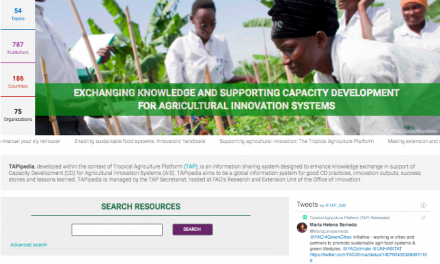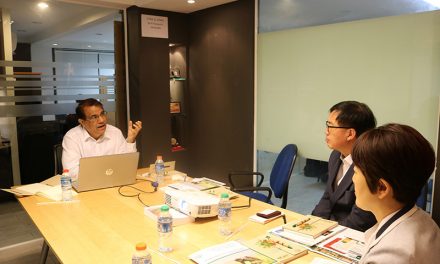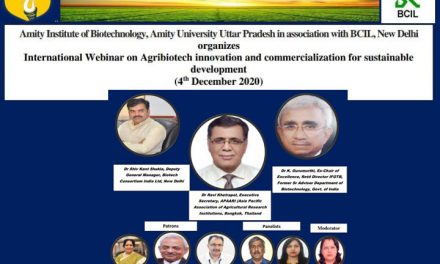Latest update: 2018/11/27 19:04
(Central News Agency reporter Huang Ziqiang, Singapore 27th) The Singapore Digital Agriculture Symposium was launched today. Professor Fang Wei, who is known as the “Father of the Taiwan Plant Factory”, shared his experience at the meeting, stressing that global agriculture is now facing severe challenges. Plant factories can Become a reliable source of food security.
The “Sustainable Food Digital Agriculture Innovation Management Seminar” co-sponsored by the International Association of Agricultural Sustainability (IAAS), Singapore Management University (SMU) and the Asia-Pacific Agricultural Research Institutions Alliance (APAARI) was held in Singapore on the 27th, inviting the United States, Taiwan, Experts, scholars and venture capitalists from all walks of the agricultural value chain attended the meeting in India and Thailand.
Fang Wei, a professor of the Department of Electromechanical Engineering at the University of Taiwan, shared the future of the smart plant factory model. He said that the challenges facing global agriculture at this stage are very demanding, and plant factories will become a reliable source of food security.
He believes that plant factories have a wide range of applications and can be combined with various fields to develop and have a promising future.
However, the key to the sustainable development of plant factory industrialization is research and development, technology application, technical operation and product marketing.
Fang Wei pointed out that Taiwan has been developing plant factories for 8 years. It mainly measures the growth conditions and nutritional status of plants or crops through analogy and digitalization of image-containing sensing systems, and further improves the defects. In order to improve quality and productivity, business opportunities can be brought about.
In addition, Li Zongru, a professor at ZTE University, proposed the concept of blockchain development combined with science and technology to carry out digital agricultural innovation management.
Li Zongru pointed out that agriculture can no longer be crowned with traditional stereotypes. Digital agriculture is not only related to land, but also closely related to the development of science and technology. The future farmers are also intelligent farmers, which are inseparable from the development of information and communication technology.
Wei Zhengyi, a professor at the University of Maryland and chairman of the International Association for Sustainable Agriculture, also used the United States as an example to analyze how the United States systematically plans a sound and forward-looking agricultural policy to support agriculture in technology research and development, technology applications, and business expansion. Innovation, as well as the global food shortage and resource crisis, how the policy side of the complete package, has received many repercussions. (Editor: Gao Zhaofen) 1071127




